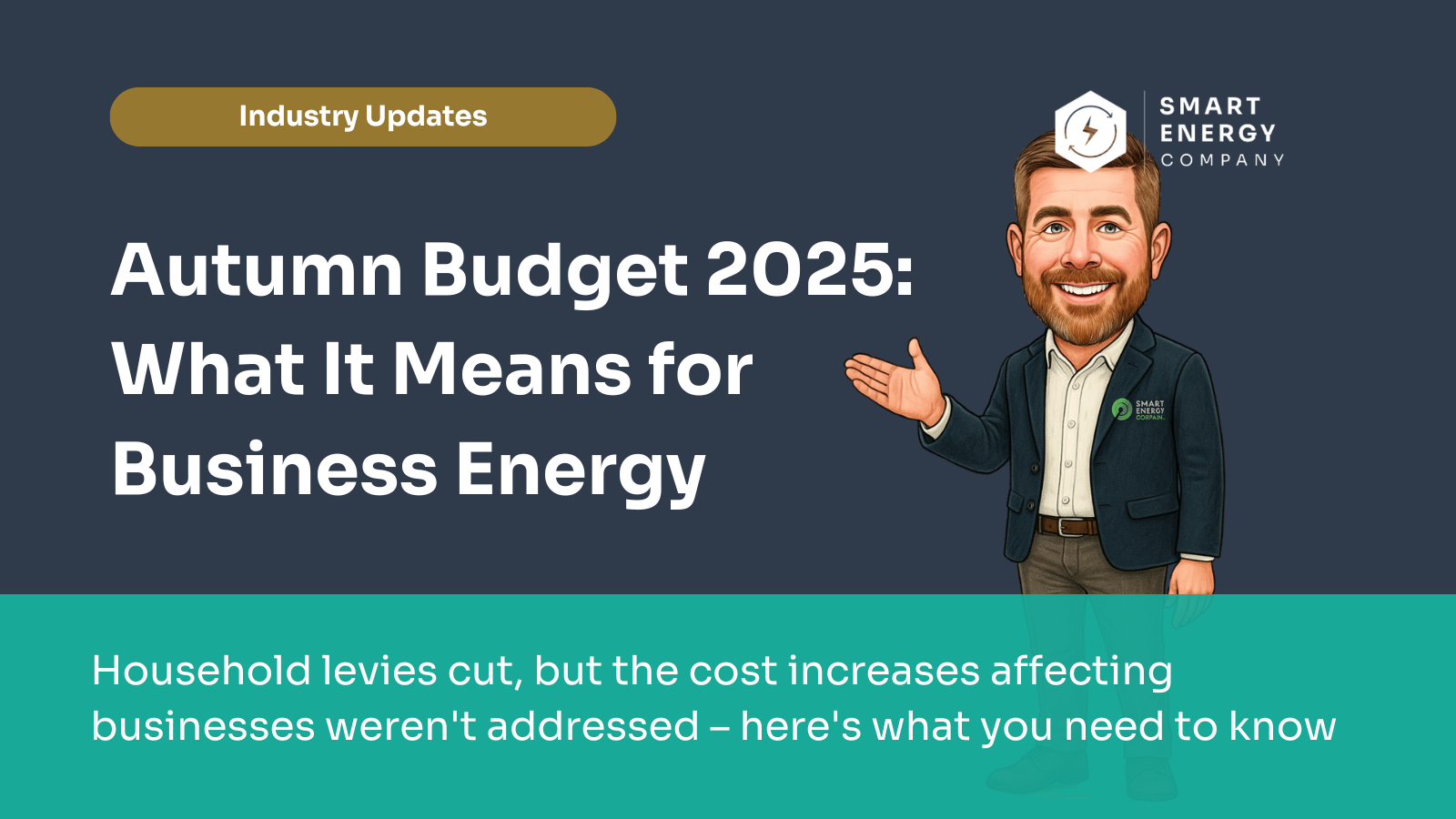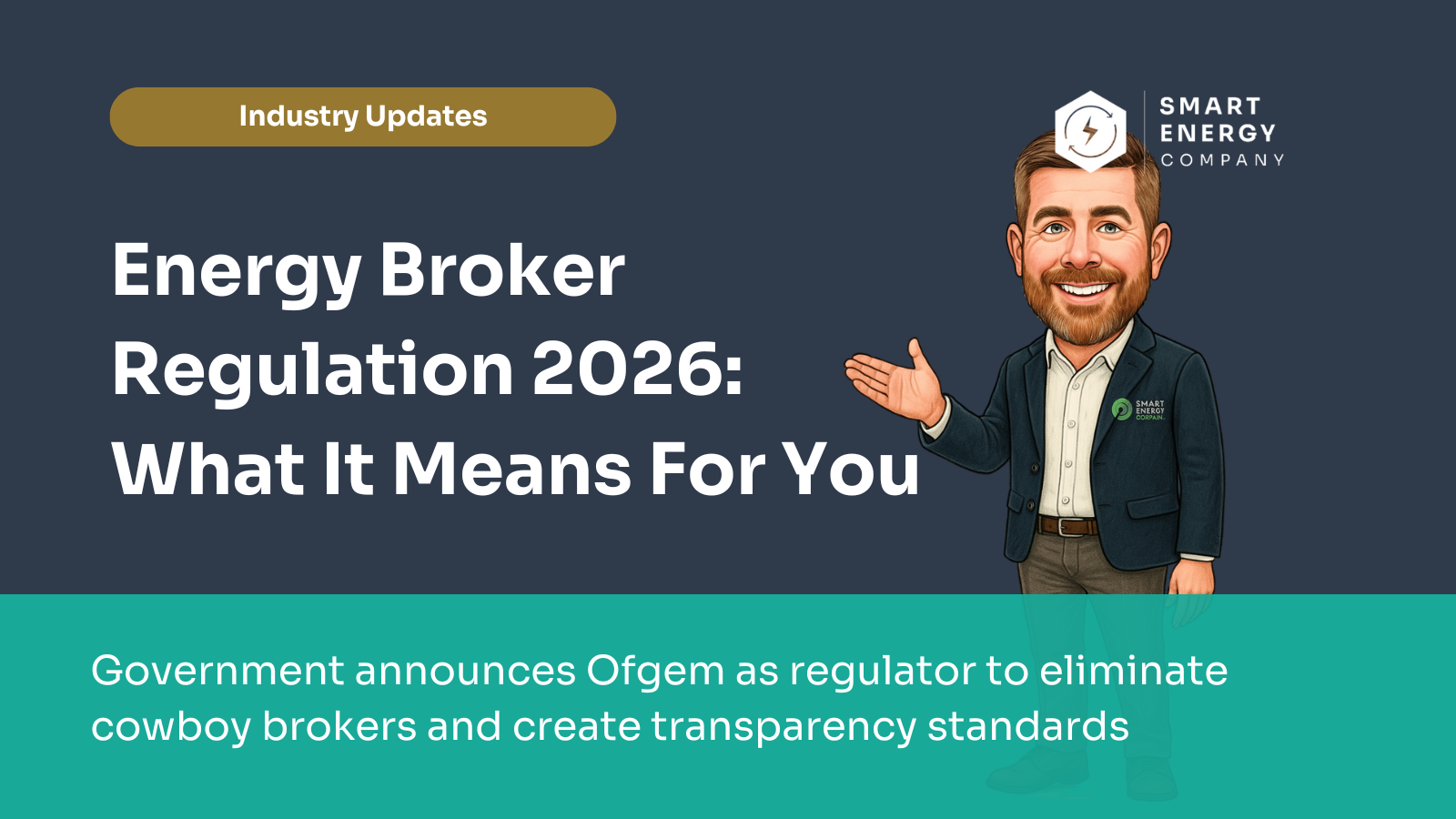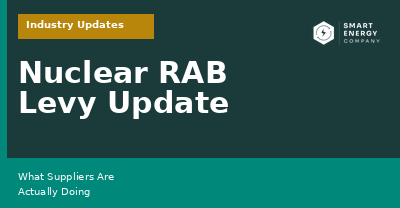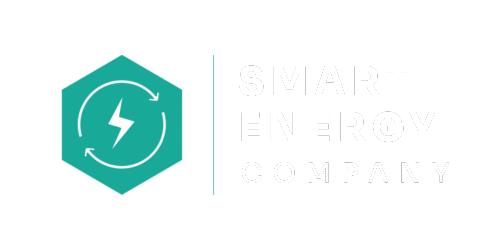Nuclear RAB Levy: What It Means for Your Business Energy Bills
Nuclear RAB Levy: What it Means for Your Business Energy Bills
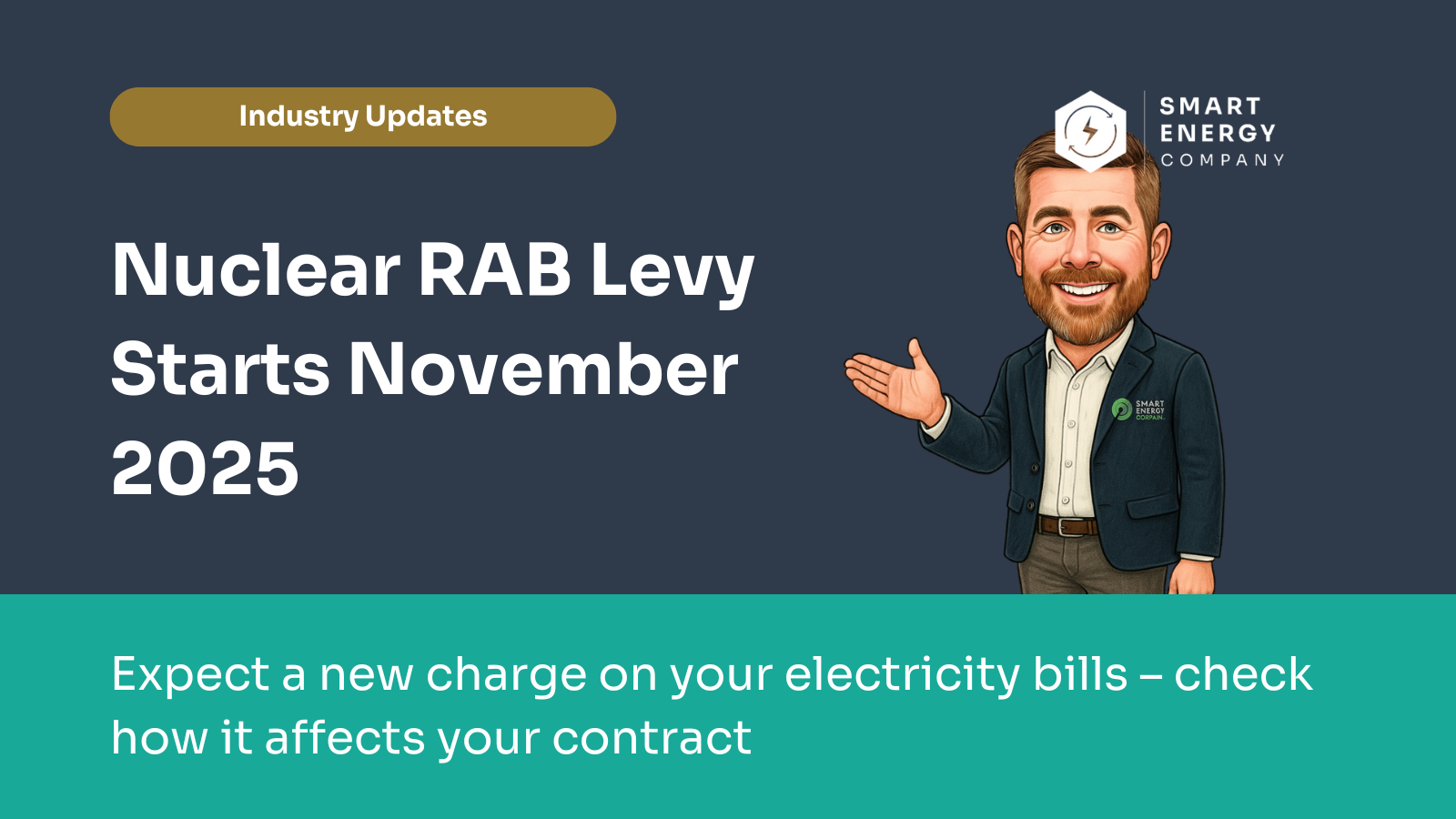
⚡ From November 2025, a new Nuclear Regulated Asset Base (RAB) levy will appear on UK electricity bills. This additional non-commodity cost will help fund the government’s long-term nuclear programme, starting with Sizewell C.
Suppliers are now implementing the Nuclear RAB Levy in different ways. Read what you need to know and ask your supplier →
🔎 What is the Nuclear RAB Levy?
The Regulated Asset Base (RAB) model is a government-backed funding approach used for major infrastructure projects like water networks and energy grids.
Traditionally, investors in nuclear plants waited until a site was generating power before seeing a return. With the RAB model, they receive secure payments during construction, funded through a small levy on electricity bills.
The aim is to make nuclear projects more affordable to build while spreading the costs more evenly across businesses and households.
📌 How Will the Levy Work?
The levy is regulated by Ofgem and administered by the Low Carbon Contracts Company (LCCC), with suppliers responsible for collecting payments through customer bills.
It’s made up of three main elements:
- Interim Levy Rate (ILR): the main charge, set quarterly
- Operational Costs Levy (OCL): a small fixed annual charge to cover scheme running costs
- Reserve Payments (TRA): to protect the scheme if any supplier defaults
Suppliers contribute based on market share, and most will pass charges on to customers.
💷 How Much Will It Cost?
The government has confirmed the first charges:
- £3.455/MWh (0.3455p/kWh) from 1st November 2025
- £0.0028/MWh OCL from 1st October 2025
Further quarterly forecasts from LCCC suggest the levy will vary between £3.50/MWh in winter and around £4.50/MWh in summer up to March 2027.
Businesses with a valid Energy Intensive Industries (EII) exemption certificate will not be charged.
👉 Avoid paying more than you need to.
Get your free quote today.
🏢 What This Means for Your Business
- Pass-through contracts → The levy will be added automatically to bills from November.
- Fixed contracts → Most suppliers have terms allowing them to amend prices if government levies change. Some may absorb the cost until renewal, but many won’t.
- EII-exempt businesses → No charges will apply if you hold a valid exemption certificate.
While the levy itself is relatively small per unit, for large consumers it could add up quickly — making it even more important to review your overall contract position.
📈 Why Is This Happening?
The UK needs to double its electricity supply and quadruple low-carbon generation by 2050 to meet Net Zero. With older nuclear stations due to retire, new capacity is vital.
The RAB model reduces financing costs by spreading risk across bill payers. The government estimates this approach could save consumers at least £30 billion per project compared to the old funding model.
✅ Final Thoughts
The Nuclear RAB Levy marks the start of a new era in UK energy financing. While it increases short-term costs for businesses, it’s designed to reduce long-term financing costs for nuclear projects and secure reliable low-carbon supply.
If you’re on a pass-through contract, expect to see the levy itemised from November. If you’re fixed, it’s worth checking your supplier’s position now.
Review Your Energy Costs
Offset New Levies
Or click below to review your energy costs and see how we can help offset new levies.
0151 459 3388
info@smart-energy.uk

